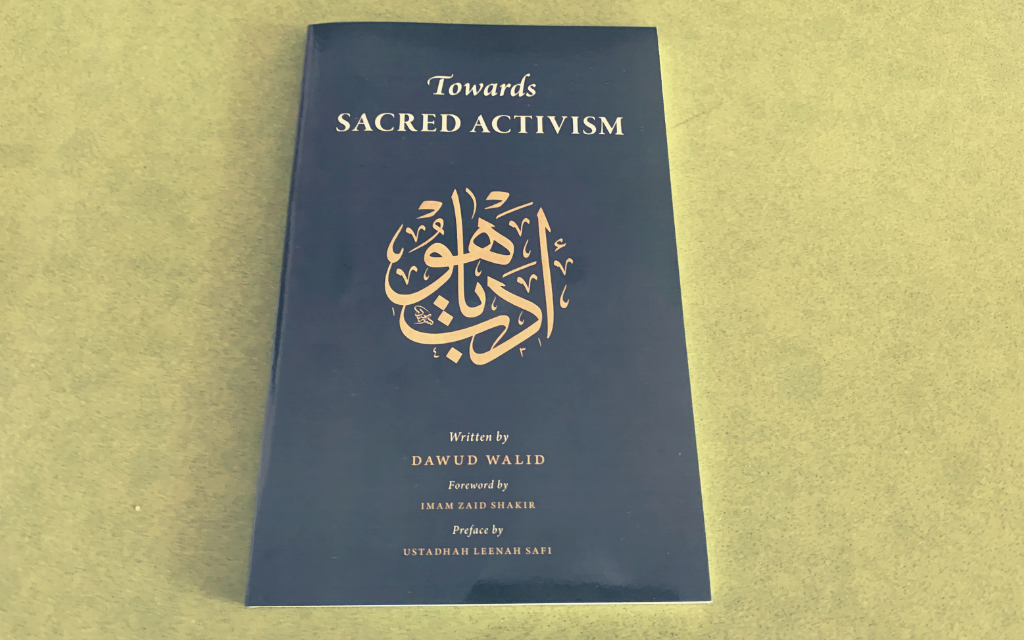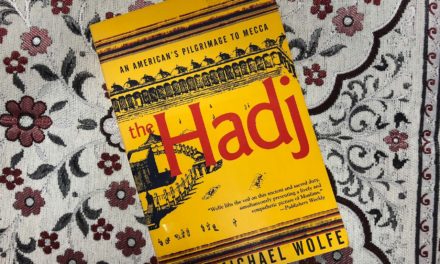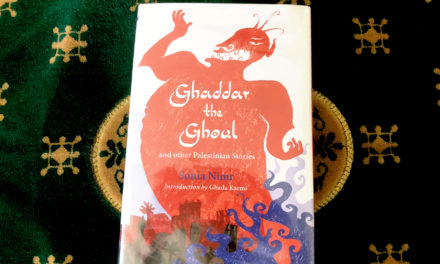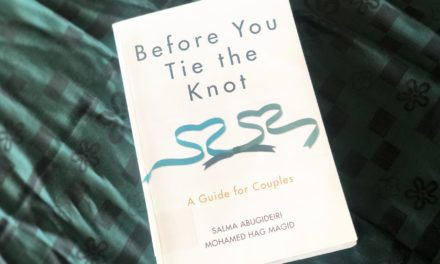Elise Bellin, Librarian of the Islamic Resource Center, wrote this book review as part of an ongoing series that focuses on a range of books within the IRC collection as a service to the community.
Towards Sacred Activism
Towards Sacred Activism: A Religious Guide for the Muslim Activist written by Dawud Walid
ISBN: 9781732258815
If you think about it, the urge to divide as a method of understanding is the basis for many of the ills that besiege our world. It may be easier to understand what something is in context to what it is not, but it is also at the heart of racism, classism… actually of all the ‘isms’; it created colonialism; it fuels the radicals (on all sides and in all categories); it gives seeming justification to horrendous acts like war and slavery. And worse yet, opportunists see this fear and division and seek to profit from it by pitting two seemingly competing sides against one another to profit from the sparks and blazes caused by conflict and polarizing sides.
Does it not make sense than to attempt to view the world and what is in it as more of a cohesive whole, a give and take, a balance? Maybe the start is simply to remove categories/barriers and learn about commonalities instead of differences. Maybe understanding that the sum is greater than its parts or looking towards something bigger is the way to go.
Imam Zaid Shakir begins his forward to Towards Sacred Activism by stating that despite his belief that this book is a “very valuable addition to the ever growing library of English Islamic literature. The title itself, however, seems to hint at an oxymoron.” Imam Shakir goes on to analyze the very divided nature of our secular Western concepts of what is and isn’t the purview of religion, the idea that secularism deals in the daily running of the world and that God is very much “in many critical aspects, distinct from the world.” He then goes on to explain that this seeming division is very much a product of the modern West.
A more integrated perspective, then, is what this book attempts to inspire, one in which, from the Muslim perspective, God is in everything and is very much a part of the picture, where each element of a person’s life adds something to the whole, and in which the richness of tradition and a people’s past does not detract from a vibrant present and indeed adds too and informs the changes they make for the future. I don’t claim to know about God, but if seeing the whole rather than its pieces makes for a more solid foundation for change, then perhaps it is about time for those adjustments.
He also states that while this book is intended as a concise, general set of guidance “to Muslims in the West regarding engagement in social justice activism from an Islamic perspective,” he believed that that didn’t preclude it from critique or make it the sole authority on the issue and that the human equation should be made a priority in any discussion of the rule vs real life. That openness to productive criticism is also something that is important and often more lacking than it should. Considering how often it feels as if criticism and critique, dialogue, and disagreement are vilified in today’s society instead of seen as a method of discourse and of improvement, it is a refreshing change that probably more should attempt to emulate.
Whatever your take on social justice, Towards Sacred Activism is at least a good place to start learning about the Muslim understanding of the process and a unique take for the rest of us to consider. So let’s make some changes by working together for a change.














